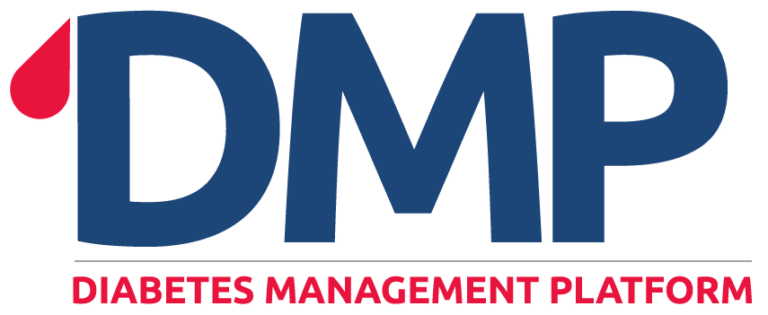Public Health Workers Role In The Fight Against Diabetes
Public health is a diverse and expansive field. It’s the cornerstone of societal wellness, dedicated to improving the overall health of communities. As we turn the lens to more specialized areas, the importance of expertise in diabetes health and fitness comes into sharp focus. With the rise in diabetes cases worldwide, there’s an increasing demand for professionals well-versed in this area.
Armed with their knowledge and skills, public health workers become essential players in the fight against this persistent global health issue. Aiming for advanced qualifications can further enhance their capacity to contribute significantly. It isn’t just a job—it’s a mission to save millions of people.
This blog post will discuss how public health professionals working in different capacities can help with diabetes prevention and management at a national scale.
The Value of a Health Policy and Management in These Career Paths
If you’re working in public health, getting a master’s degree in health policy and management can be a game-changer. This advanced qualification is not just another feather in your cap; it’s an investment that elevates your career trajectory and enhances your professional prowess. Given its flexibility and accessibility, pursuing a health policy and management online masters degree is a practical choice for many working professionals. However, what does it mean for those focused on diabetes health and fitness? This degree hones your understanding of healthcare systems, policy-making, and managerial strategies, all of which are essential for effective diabetes management at a systemic level. With this knowledge, you can influence decisions, design better health programs, and advocate for policies that directly impact the lives of people with diabetes. Your role expands from not just a healthcare provider but to a leader driving meaningful change in diabetes healthcare.
Different Types of Public Health Workers & Their Role In The Fight Against Diabetes
-
Health Education Specialist
A Health Education Specialist bridges the gap between health information and community understanding. Their role involves disseminating crucial knowledge about diseases, including diabetes, to the public. Additionally, they design educational programs, conduct workshops, and provide resources that empower individuals to manage their health better.
In the context of diabetes, they play a significant role by teaching people about preventive measures, dietary control, and the importance of regular health checks. Qualifications often include:
- Having a public health degree or a degree in related fields.
- A knack for communication.
- A passion for community service.
They are the unsung heroes contributing significantly to diabetes management and prevention at the grassroots level.
-
Epidemiologist
An Epidemiologist is a detective in the public health sphere. They study disease patterns, identify risk factors, and help develop strategies to control or prevent diseases like diabetes. Their work is crucial in understanding the prevalence of diabetes, its triggers, and its impact on various demographics. As a result, they use these insights to shape health policies and community interventions.
To be an epidemiologist, one typically requires a master’s degree in public health or epidemiology. With their analytical insight and understanding of disease progression, epidemiologists are vital players in combating diabetes.
-
Biostatistician
Biostatisticians are the mathematicians of the public health world. They collect and analyze health data to draw meaningful conclusions, while often working with epidemiologists. In the context of diabetes, their role becomes essential in interpreting complex datasets on disease prevalence, the efficacy of treatments, and patterns in lifestyle factors.
They typically have a degree in biostatistics or a related field, and they have a combination of analytical abilities and health science knowledge. Furthermore, by turning numbers into knowledge, biostatisticians play a critical role in shaping the future of diabetes management.
-
Health Services Administrator
Health Services Administrators manage the business side of healthcare. They oversee operations, implement policies, manage finances, and coordinate services within healthcare facilities. Regarding diabetes care, their effective management ensures the smooth delivery of services, from diabetes education programs to treatment facilities. They need a strong foundation in health administration, often through a bachelor’s or master’s degree in the field, and critical skills such as leadership, communication, and problem-solving.
-
Dietitian/Nutritionist
Dietitians and Nutritionists are the guiding stars of healthful eating. Their role becomes vital for people with diabetes who need to manage their condition with careful dietary choices. Additionally, they plan and implement personalized meal plans, provide nutritional education, and monitor progress. To qualify, one typically requires a bachelor’s degree in dietetics, nutrition, or a related field and state licensure. Their knowledge is priceless for people with diabetes, enabling them to make lifelong dietary improvements.
-
Health Policy Analyst
A Health Policy Analyst evaluates and develops healthcare policies. They research, analyze, and propose strategies that can improve health outcomes. In the realm of diabetes, they can play a vital role in shaping policies that make diabetes care more accessible and affordable. Their work can directly influence the lives of millions of people living with diabetes. For this career, you need a master’s degree in public health, health policy, or a related area. Their expertise ensures that policy-making is evidence-based, efficient, and, most importantly, patient-centric.
-
Community Health Worker
Community Health Workers are the heart of public health at the grassroots level. They interact directly with communities, providing health education, supporting, and connecting people to needed health services. For people with diabetes, they are invaluable allies, offering local, culturally-sensitive health advice and providing much-needed support.
A career as a community health worker can sometimes require a specific degree, though some health or social work background is beneficial. Essential skills include communication, empathy, and a commitment to community service. Their work forms a vital link between healthcare providers and patients, improving diabetes management at the community level.
-
Exercise Physiologist
Exercise Physiologists are fitness architects in the realm of healthcare. They design and supervise exercise programs to improve patient health. In the context of diabetes, their role is crucial as they create individualized fitness plans that aid blood sugar management, weight control, and overall health improvement. The job requires a degree in exercise physiology or a related field and, often, a certification. They bring the essential balance of physical activity into the diabetes management equation, contributing significantly to the well-being of individuals with this condition.
-
Public Health Consultant
Public Health Consultants are the strategic advisors in the health sector. They provide expert guidance to organizations on various health matters, including diabetes management programs. Their input can improve service delivery, increase program efficacy, and foster innovation in care. Typically, this role requires a master’s degree in public health or a related field and experience in the health sector. Through their insight and expertise, public health consultants can help shape more effective, sustainable, and impactful diabetes management strategies.
Conclusion
Choosing a career in public health is choosing to make a difference. As we’ve explored, many roles can significantly impact the lives of people with diabetes. Furthermore, each professional plays a unique and vital role, from health education specialists to exercise physiologists. Their combined efforts can help improve diabetes management, prevention strategies, and overall quality of life for those affected. With the right qualifications and commitment, you can join this noble cause and contribute to a healthier future for all. Hope you enjoyed this “Public Health Workers Role In The Fight Against Diabetes” article.







